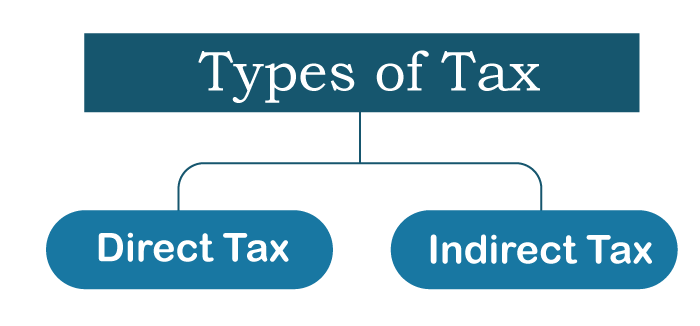A private limited company is the most preferred type of business entity in India. Each year nearly a lakh companies are incorporated in India. All private limited companies registered in India are required to file income tax returns in ITR-6 return filing or ITR 7 each year mandatorily, irrespective of turnover or profitability. Hence, even private limited companies incorporated and not having any business activity are required to file income tax returns. In this article, we look at the income tax rate applicable for private limited companies during the assessment AY 2022-2023.
A business organization held by a small group of people is known as a Private Limited Company. It’s owned by a group of members called shareholders. Startups and businesses with high growth aspirations popularly choose the private company as the appropriate business structure. The business entity is recognized as a company through registration under the Companies Act of 2013 in India. Ministry of Corporate Affairs is the governing body, widely known as the MCA. In this article, we will discuss the taxation criteria for a Private Limited Company in India.

What is Taxation for Private Limited Company?
A tax authority or government levies or imposes a tax on private limited companies. We apply income tax to Good and Services Tax (GST) to all levels.
State and central governments play an important role in determining taxes. To streamline the taxation process and ascertain transparency in the country, the state and central governments have introduced several policy reforms over the years. One such change was the Goods and Services Tax (GST), which simplified the tax regime on the sale and distribution of goods and services in the country. Taxation of governments or authorities has been a mainstay of civilization since ancient times.
A corporate is an entity that has a separate and independent legal entity from its shareholders. Domestic as well as foreign companies are liable to pay corporate tax under the Income-tax Act. While a domestic company is taxed on its universal income, a foreign company is only taxed on the income earned within India i.e. is being accrued or received in India.

How many types of Taxation for Private Limited Company?
- Corporate Tax: It is a tax imposed on the profit of a business.
- Income Tax: It is that tax which is imposed by Governments on financial income produce by all entities within their jurisdiction, including individuals and businesses.
- Capital Gains Tax: These are imposed on capital gains made by businesses from the sale of particular assets including stocks, agreements.
- Property Tax: It is paid by the owner of the property. This is calculated as per the value of the land.
- Inheritance Tax: It is paid by the owner of the property. This is calculated as per the value of the land.
- Sales Tax: This is a consumption tax imposed by the government on the sale of goods and services. It can take in the form of a Value Added Tax (VAT) and Goods and Services Tax (GST), a state sales tax, or an excise tax.
What is the Income of a company?
The rate of taxes and how the tax will be calculated on income of the companies, we should learn about the types of income which a company earns. Here it is :
- Profits earned from the business
- Capital Gains
- Income from renting property
- Income from other sources like dividend, interest etc.
Tax rates applicable
The Tax Rate for Private Limited Company for Assessment Year 2022-23
Tax rate for Domestic Company if Turnover > Rs. 400 Crore.
| Income Slab | % of Tax | Surcharge |
| Upto 1 Crore | 30% | Nil |
| Above 1 Crore but upto 10 Crore | 3,00,000 + 30% | 7% |
| Above 10 Crore | 3,00,00,000 + 30% | 12% |
Health & Education Cess is fixed @4% on all income slab.
Tax rate for Domestic Company if Turnover < Rs. 400 Crore.
| Income Slab | % of Tax | Surcharge |
| Upto 1 Crore | 25% | Nil |
| Above 1 Crore but upto 10 Crore | 2,50,000 + 25% | 7% |
| Above 10 Crore | 2,50,00,000 + 30% | 12% |
Health & Education Cess is fixed @4% on all income slab.
Tax rate for Foreign Company is @ 40% fixed and Cess @ 4% on total income tax + surcharge.
Tax Benefits for Private Limited Company in India
Salary to founder or directors: For any person who is the founder or director of the company then the motive of that person is to earn maximum profit. Profit amount is to be taken by the founder of directors in the profit-sharing ratio which is pre-decided as a dividend.
For the purpose of saving tax, directors can receive profit as salary instead of dividend. Salary to founder or directors is an expense of the private limited company.
Sitting fees to the director: A company may pay fees to the director for attending meetings on the board. Director’s sitting fees should not more than Rs. 1,00,000/- and it is decided by BOD.
It may be claimed as the expense and in hands of the director, it is exempted to the limit provided.
Preliminary expenses: These are incorporation expenses that are raised before and after the incorporation of the private limited company. These are to be paid by the founder or director of the company in the form of professional charges for the creation of AOA and MOA, fees paid to the registrar, stamp duty, etc.We can save tax with these expenses if we have proper documentation.
Rent expenses: The registered address of the company is on rent on the name of the director or name of a relative then this rent may be booked in the books. So, we can book rent expenses and can take tax benefits freely.
FAQs
Q: Are there any Goods and Services Tax (GST) implications for Private Limited Companies?
Private Limited Companies are also subject to GST on their taxable supplies of goods and services. The GST rates can vary based on the nature of the supplies.
Q: Are there any incentives for startups or new businesses?
The government of India has introduced various incentives and exemptions for startups, including a reduced tax rate for eligible startups. However, specific conditions and criteria must be met to avail of these benefits.
Q: What are the deductions and exemptions available to Private Limited Companies?
Private Limited Companies may be eligible for certain deductions and exemptions based on their business activities, investments, and compliance with specified conditions. Common deductions include those related to research
Practice area's of B K Goyal & Co LLP
Income Tax Return Filing | Income Tax Appeal | Income Tax Notice | GST Registration | GST Return Filing | FSSAI Registration | Company Registration | Company Audit | Company Annual Compliance | Income Tax Audit | Nidhi Company Registration| LLP Registration | Accounting in India | NGO Registration | NGO Audit | ESG | BRSR | Private Security Agency | Udyam Registration | Trademark Registration | Copyright Registration | Patent Registration | Import Export Code | Forensic Accounting and Fraud Detection | Section 8 Company | Foreign Company | 80G and 12A Certificate | FCRA Registration |DGGI Cases | Scrutiny Cases | Income Escapement Cases | Search & Seizure | CIT Appeal | ITAT Appeal | Auditors | Internal Audit | Financial Audit | Process Audit | IEC Code | CA Certification | Income Tax Penalty Notice u/s 271(1)(c) | Income Tax Notice u/s 142(1) | Income Tax Notice u/s 144 |Income Tax Notice u/s 148 | Income Tax Demand Notice
Company Registration Services in major cities of India
Company Registration in Jaipur | Company Registration in Delhi | Company Registration in Pune | Company Registration in Hyderabad | Company Registration in Bangalore | Company Registration in Chennai | Company Registration in Kolkata | Company Registration in Mumbai | Company Registration in India | Company Registration in Gurgaon